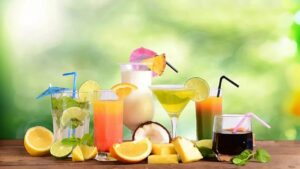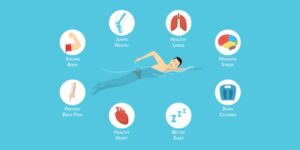Why Skipping Water During Meals Might Be Better for Digestion


Why You Shouldn’t Drink Water While Eating
Staying hydrated is essential for maintaining good health. Water keeps your body functioning properly, regulates temperature, and helps with digestion. However, there is growing debate about whether drinking water during meals is a good idea. While many people drink water while eating without thinking twice, some experts argue that it may not be the best habit for optimal digestion and overall health.
This article will explain the potential downsides of drinking water while eating and why it may be better to keep your water consumption separate from meal times.
How Digestion Works
To understand why drinking water during meals might be a problem, it helps to know how digestion works. Digestion begins in the mouth, where food is broken down by chewing and mixed with saliva. Saliva contains enzymes that help break down carbohydrates and prepare food for the stomach.
In the stomach, food mixes with stomach acids and digestive enzymes. These substances break down food into smaller particles so the nutrients can be absorbed in the intestines. For this process to work efficiently, the stomach environment needs to remain acidic.
Potential Problems with Drinking Water While Eating
Here are some reasons why drinking water during meals may interfere with digestion:
- Dilutes Stomach Acid and Digestive Enzymes
One of the primary concerns is that drinking water during meals can dilute stomach acid and digestive enzymes. Stomach acid plays a critical role in breaking down food and killing harmful bacteria. Digestive enzymes further break down nutrients so your body can absorb them.
When you drink water while eating, the stomach environment becomes less acidic, which can slow down the digestion process. This may lead to bloating, gas, and discomfort after meals.
- Slower Breakdown of Food
When stomach acid and digestive enzymes are diluted, food may not break down as efficiently. This can cause food to remain in the stomach longer than necessary, leading to a feeling of heaviness or indigestion. Over time, poor digestion may impact nutrient absorption and overall health.
- Overeating and Weight Gain
Drinking water during meals may cause you to eat more than you need. When you drink water, it creates a sense of fullness that is temporary. As your stomach empties the water quickly, you may feel hungry again sooner than if you had eaten without drinking water.
This can lead to overeating and, eventually, weight gain if it becomes a regular habit.
- Increased Risk of Acid Reflux
Drinking water during meals can also contribute to acid reflux. When you consume a large amount of liquid while eating, it increases the volume in your stomach. This additional pressure can push stomach contents, including acid, back up into the esophagus, causing heartburn and acid reflux symptoms.
- Disrupts Natural Chewing Process
Chewing is an essential part of digestion. When you chew thoroughly, your food mixes with saliva, which contains enzymes that start breaking down carbohydrates. Drinking water during meals can disrupt this process by causing you to chew less thoroughly. This may make it harder for your stomach to digest food properly.
What Science Says
While there is anecdotal evidence and traditional beliefs supporting the idea that drinking water during meals is harmful, scientific studies on the topic are limited. Some experts argue that moderate water consumption during meals does not significantly impact digestion.
However, many nutritionists and health professionals recommend drinking water before or after meals rather than during them to optimize digestion and prevent potential issues.
When to Drink Water for Optimal Digestion
To maintain proper hydration and support healthy digestion, consider the following tips:
- Drink Water Before Meals: Have a glass of water about 30 minutes before eating. This can help you stay hydrated and reduce the urge to drink water during the meal.
- Sip Sparingly During Meals: If you must drink water while eating, take small sips rather than gulping down large amounts. This will minimize the impact on digestion.
- Wait After Eating: Try to wait at least 30 to 60 minutes after a meal before drinking water. This gives your stomach time to digest food properly.
- Listen to Your Body: Pay attention to how your body responds. If you feel bloated or experience digestive discomfort after drinking water during meals, it may be worth adjusting your habits.
Alternative Ways to Stay Hydrated
If you’re concerned about staying hydrated without disrupting digestion, here are some alternatives:
Eat Water-Rich Foods: Include foods with high water content in your meals, such as cucumbers, watermelon, oranges, and lettuce. These foods can help keep you hydrated naturally.
Herbal Teas: Sip on warm herbal teas between meals to stay hydrated and support digestion. Ginger and peppermint teas are particularly good for digestion.
Infused Water: Make drinking water more enjoyable by infusing it with fruits, herbs, or cucumber slices.
Exceptions to the Rule
While avoiding water during meals may benefit digestion for some people, it’s important to note that individual needs vary. Some people may not experience any negative effects from drinking water while eating. Additionally, staying hydrated is crucial for certain health conditions, and exceptions may apply.
If you have specific dietary needs or medical conditions, it’s best to consult a healthcare professional for personalized advice.
Conclusion
While drinking water during meals is common, it may not be the best habit for optimal digestion. It can dilute stomach acids and digestive enzymes, slow down food breakdown, increase the risk of acid reflux, and potentially contribute to overeating.
To support better digestion, try drinking water before or after meals rather than during them. Small changes to your eating habits can make a big difference in how your body processes food and absorbs nutrients.
By being mindful of your water consumption during meals and listening to your body, you can improve your digestive health and overall well-being.




